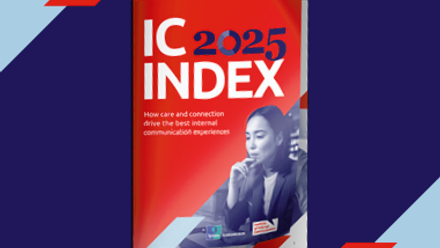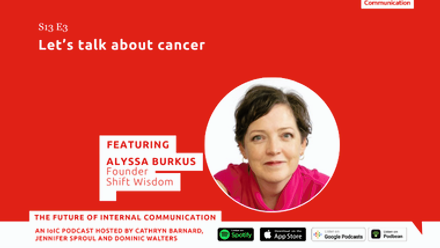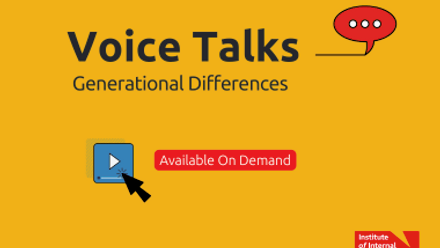
It might be the fact that your employee isn't quite hitting the targets you need them to. It could be you've noticed a negative trend in their behaviour. Whatever the reason behind the difficult conversation, it is essential these elements and their impact are communicated effectively.
This is easier said than done. So, let's take a moment to look at how you can effectively guide these difficult conversations during performance reviews.
A mistake managers often make when approaching difficult performance reviews is to be focused on the problem. However, you'll generally find you'll get a more positive reception if you're solutions-oriented. You can best approach this by presenting your role as that of a guide to your employee; your discussions are aimed at empowering them to enrich their career experience.
This begins with planning before the performance review. Take the time to better understand the issues. Don't simply put the onus on the employee to independently work through them. Establish what support you and the organization can offer them through making improvements. Indeed, from the benefit of your experience in the business and the industry, you will usually be better positioned to help them to understand the nuances that impact their trajectory.
This guidance-based approach is very much in line with the focus on performance management. Many companies are committed to moving away from outdated modes of static yearly evaluations in favour of a continuous process of communication, coaching, and feedback to empower workers to thrive. This requires clarity on your part; define your worker's duties, goals, and the path toward improvement. This can be paired with discussions about your workers' career plans, framing the difficult notes around how improvements can be incorporated into their development goals.
There is increasing recognition of how the well-being of workers has a direct influence on their efficacy, productivity, and satisfaction. This is something you need to bear in mind when approaching difficult conversations during performance reviews — what else is happening in your employee's life which may be causing issues? Focus on the care and welfare of your employee as much as the goals of the business.
This isn't always easy to achieve. After all, the culture of some workplaces is not geared toward emotional care, beyond the occasional events like Mental Health Awareness Week. Indeed, it may be the case that the employee is not comfortable talking about their personal challenges. The key is to exhibit openness. A recent study found 62% of workers polled wanted their employers to talk openly about mental health. Create a space in which they feel safe to discuss personal elements. Reassure them that frankness doesn't result in reprisals or prejudice. Communicate to them how your role is not just to ensure they're hitting targets, but to support them.
It can also be helpful to work with your human resources (HR) department to prepare information on resources you can provide to bolster your employee's mental wellbeing in the workplace and minimize stress. If they are finding the office overwhelming or are struggling to maintain a balance between work and home, there may be opportunities to adopt flexible scheduling. You might find workers don't have easy access to health services, in which case improving benefits could help them gain access to the therapy they need. The key is to approach the issue from a position of care and be willing to collaborate on addressing their personal challenges as well as those which are strictly professional.
It is better to approach a difficult conversation without assuming the worst of your employee. In the vast majority of cases, underperformance is not going to be the result of laziness or malice. Rather, it's due to gaps in their knowledge base. You can be effective in guiding performance reviews by presenting yourself as an approachable source of education.
It will often be the case that your employee is not clear on gaps in their knowledge or don't have the resources to fully understand the problems they face. This can be particularly problematic when it comes to challenges caused by your workers' state of wellness. Burnout is a common issue that affects employees' performance, but they may not always be aware of how their experiences are symptomatic of this issue. In fact, it's only been in the last couple of years that the World Health Organization has designated it a diagnosable occupational phenomenon. Talk through the physical and mental effects of burnout, and how it impacts their job and quality of life. Above all else, this can be a route to working together to understand what aspects of the workplace culture could be causing burnout, so you can find an appropriate solution.
This approach to education should also be in place where the employee's behaviour is destructive. Certainly, strict disciplinary protocols must apply when employees overtly demonstrate prejudice or abuse. However, there may be unconscious microaggressions which are inadvertently causing discord in the team or with customers. Approach such actions with a view to understanding what training your employee may need to understand their behaviour better and make changes. This also serves to reinforce how important diversity and inclusivity is to the business, and what the worker's role is in maintaining it.
Conclusion
There will occasionally be times employee reviews include difficult conversations about performance and behaviour. In most circumstances, it is best to take the approach of a mentor, becoming a provider of career guidance, care, and educational information. With a considerate and relationship-oriented approach, you can communicate areas for improvement effectively and positively.






